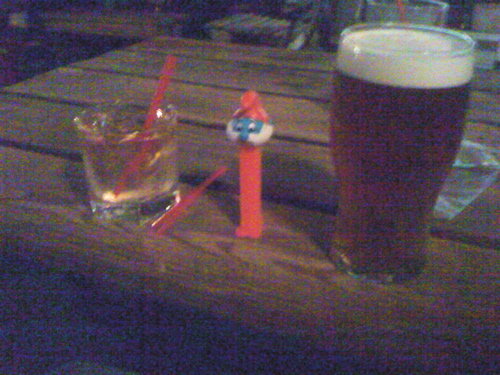It is so silly to talk about emptiness. It’s totally irrelevant. Emptiness is not this, not that. (And both not this and not that, and neither not this nor not that.) Really, what was I thinking when I decided to write a weekly blog on emptiness! It’s futile. There’s nothing to talk about. In a way, I’d rather talk about my friend who told me last night that he cooks pancakes with pieces of Butterfinger candy inside. How awesome is that?
But let’s get down to it. There are two ways to talk about emptiness. (Aren’t there always two ways to talk about everything in Buddhism? Doesn’t the whole absolute v. relative thing kind of dominate Buddhist thought?) The two ways to discuss emptiness are analytical and experiential, or philosophical and practical, or trangdon (“words”) and ngedon (“essential meaning”). I thought today we might try to discuss our actual experiences of emptiness.
What kind of experiences of emptiness have you had? What kind of practical, down-to-earth understandings of emptiness have you arrived at? I’ve had experiences of emptiness during meditation—flashes and glimpses of the non-substantiality of things. But I read something in Reggie Ray’s Indestructible Truth that caught my eye, something about the experience of emptiness as a common developmental experience, one with which our culture has no means of dealing.
“At some point in their life, often during adolescence, they [my students] have had an experience in which they realized that they did not exist. They saw their own insubstantiality, their ephemeral nature, their emptiness. Such experiences, which are relatively common among young people, can be very distressing and leave one feeling shaky indeed.”
Reggie goes on to explain how, “In modern cultures, one can look long and hard, without success, for someone to validate and interpret the wisdom of such insights.” And how our culture’s authorities—parents, teachers, doctors, etc.—diagnose depression and anxiety, and prescribe medications, etc., in the face of this kind of realization. And how when a student who has had such an experience finds the dharma, she often experiences a tremendous sense of relief and identification and validation.
Has anyone had this kind of formative adolescent experience? Would you be willing to share your story? Perhaps such a dialogue is too personal to be shared online and in public. If so, perhaps we could have a discussion about to what degree the experience of emptiness is developmental and universal in the sense that Reggie seems to be suggesting.
My most formative experiences with emptiness have come from playing music. When making music, especially in a group, I see how every single moment, every single fragile construction of reality, every single fragment of existence passes in constant flux, blinking and flickering in and out of existence. Moreover, each of these flickers, each of these moments must pass through one’s consciousness in order for it to have any kind of solidity at all. Awareness itself is the gateway of all existence—the aperture of reality. Everything—my own self, the world and its inhabitants, reality’s infinite configurations—endlessly flows in and out of utter emptiness.
Or as Suzuki Roshi writes in Zen Mind, Beginner’s Mind, “Everything comes out from nothingness moment after moment… We say true existence comes from emptiness and goes back again into emptiness.”
Does anyone else have any kind of formative experience of emptiness they would like to share? An experience from on or off the cushion? A story from before or after their discovery of the dharma? A riff on emptiness?

